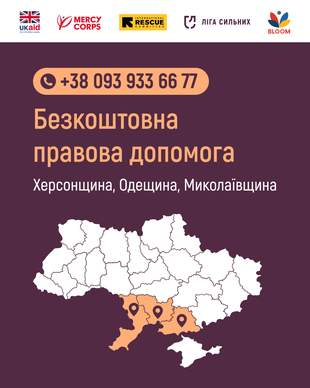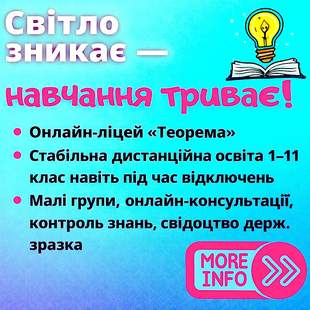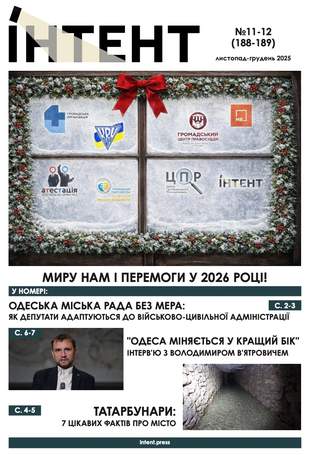Меню
Соціальні мережі
Розділи
June 19, 2024, 11:32 p.m.
"Look for me among either POWs or KIAs": the stories from the families of captivated marines
This article also available in English407
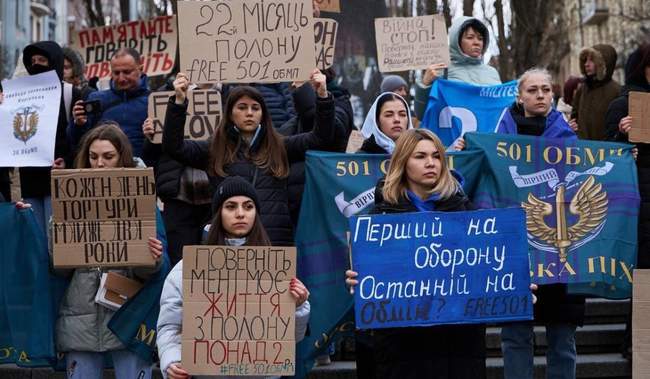
Valerii's sister Karina, with other prisoners' relatives, at the Kyiv rally. Photo provided by the interlocutor.
For more than two years now, the defenders of Mariupol have been subjected to torture, starvation, interrogation, and human rights violations in Russian captivity. Perhaps some of them will not return home alive. Their families continue to hope for the best and remind the public of their plight in every city across the country. Mariupol was defended by several units of the Armed Forces of Ukraine and the National Guard of Ukraine. Due to the media exposure of the Azov Regiment, most prisoners of war and captives are associated with it, but this is not the case. An Intent journalist spoke to several relatives of the 36th Brigade’s marines who were taken as POWs.
"My fight for my brother will never stop"
"Bring my life back from captivity" is the poster Karina (on the photo) holds every weekend at rallies in support of prisoners of war and missing persons in Kyiv. Her brother Valerii is a serviceman with the 501st Separate Marine Battalion, one of those taken prisoner on 4 April 2022.
"When the full-scale invasion began, he called me when he and his comrades were leaving Shyrokyne for Mariupol. He was laughing hysterically; he didn't know what was happening. He said, 'Mum, I'm spitting blood.' A few days later, he called again and said they had no food, but they had found some soft drinks and chocolate in a destroyed shop. Those were the only two calls he made to his mother and wife during the siege of Mariupol, and he could sometimes text to me that he was doing well," says his sister Karina.
On 3 April, she lost contact with her brother. The very next day, she recognised him in a video of him being captured with other soldiers. In the video, Valerii was limping. Later, on 7 April, she spotted her brother in another video she found on a propaganda outlet, where he and other prisoners were eating in a canteen.
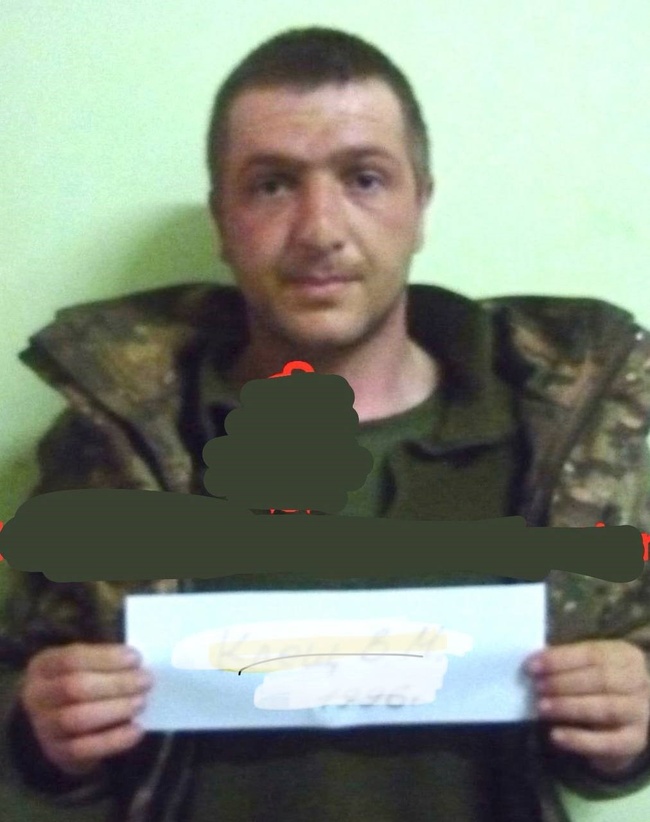 Valerii’s photo Karina found in a propaganda source. The photo is provided by an interlocutor.
Valerii’s photo Karina found in a propaganda source. The photo is provided by an interlocutor.
"Before 2022, he used to say that his greatest fear was being taken prisoner. Once, during these two years, a soldier released from captivity contacted us, saying that my brother was in a strict regime colony in Mordovia. He mentioned they were forced to stand there for 16 hours a day and that my brother often thought about his children. He has two: Sofia, 4, and Artur, 3. Sofia often looks at her dad's photo and says he’s busy earning money at work and will bring them lots of candies," says Valerii's sister.
Karina continues to attend the rallies every week, along with other families of POWs. Valerii's other relatives from the Cherkasy region occasionally come to Kyiv to participate in the rallies.
"His best friend was killed in front of him"
Stanislav also faced the full-scale invasion in Shyrokyne with most of the 501st Battalion. After leaving for Mariupol in February 2022, he did not immediately tell his wife what was really happening there.
"In early April, there was already a situation where most of families were not receiving any calls. But a few days after another radio silence, my Stas made it through and called me. I wondered how most people didn't get calls, but Stas managed to contact me. Later, after he was captured, I found out that he was in a hospital at the plant, where he could catch a signal. Of course, he didn't tell me anything about his wounds," says Maryna.
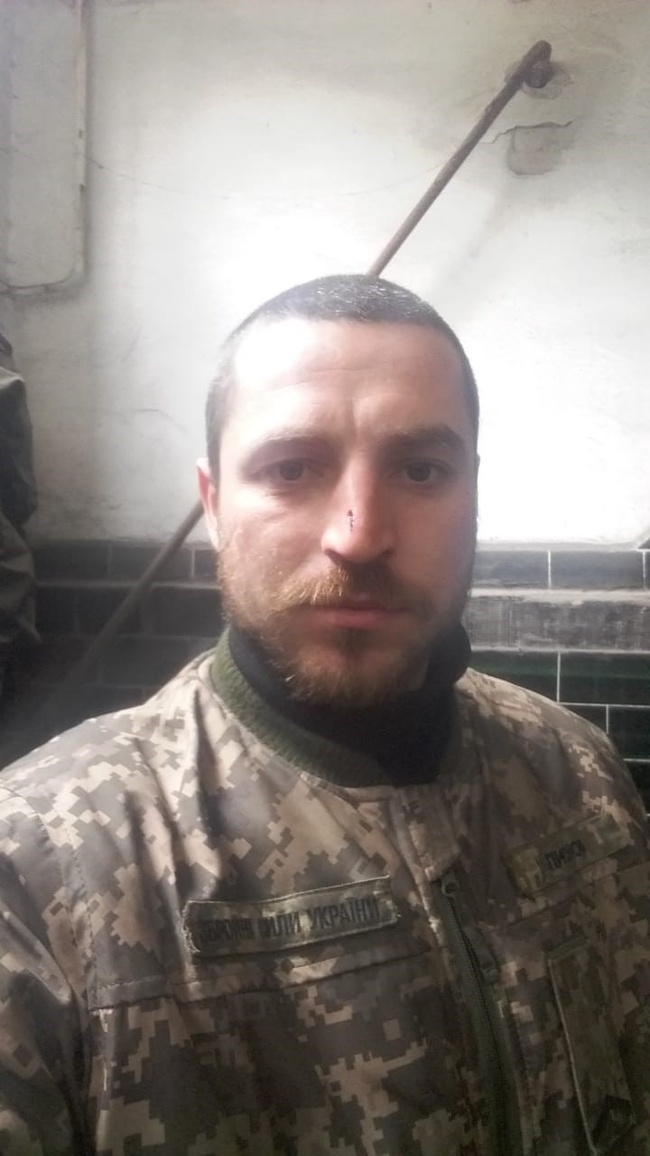 The photo was taken by Stanislav during the fights in Mariupol. Photo provided by the interlocutor.
The photo was taken by Stanislav during the fights in Mariupol. Photo provided by the interlocutor.
She remained in contact with her husband until 12 April. But that evening, at 6 p.m., she heard on the phone: "The person you are calling cannot accept the call at this time." That same evening, she received a call from Stas's best friend's stepfather, who told her that they had both been captured.
In August 2022, Maryna received a letter from Stanislav with the standard content: "Alive, healthy, have clothing and shoes on. Don't worry; I love you. Wait for our meeting."
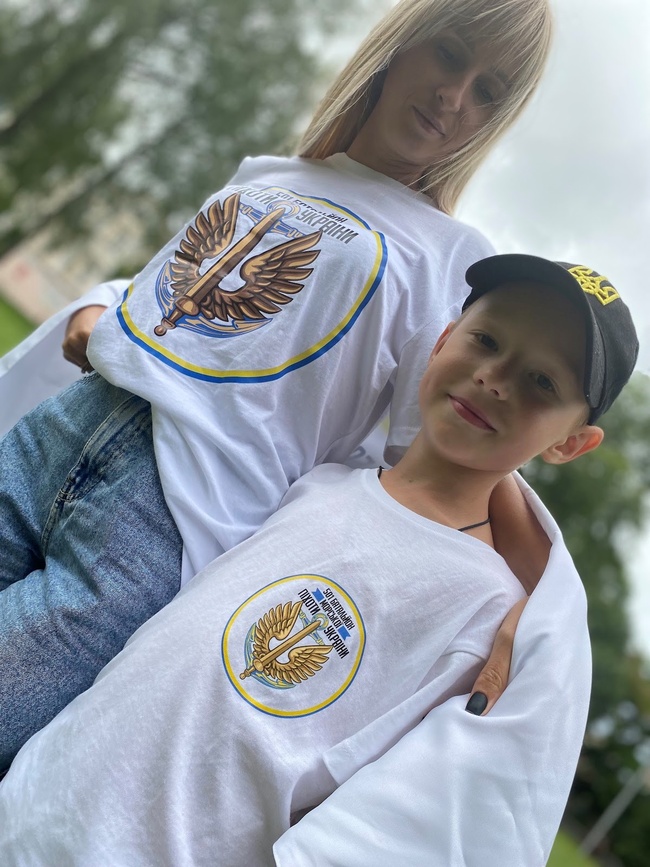 Maryna with her son. Photo from the interlocutor's personal archive
Maryna with her son. Photo from the interlocutor's personal archive
"In December, Stas’s cellmate called and said that Stas was holding strong and thinking often about me. He mentioned to me that Stas was in fair physical condition but had lost 20 kg. He said they were beaten and tortured, but in between the beatings, Stas supported everyone, made jokes, and raised morale so they wouldn't give up. Then, in April 2023, a man from another colony was released. I understand they were often transported to different places of detention. This man said they were in the Vladimir region, and it was better there. They were almost never beaten because, after a year, there was nothing left to beat out, and everyone had lost a lot of weight," says the prisoner of war's wife.
According to what she learned from those released from captivity, her husband served time in the Olenivska colony, in the village of Pakino, Vladimir region, and in Pre-trial Detention Centre No. 2 in Kamyshyn, Volgograd region. In all these places, the prisoners were tortured.
In particular, at the "reception" in the Olenivska colony, immediately after the marines were captured, the so-called Donetsk People’s Republic men tortured to death Stanislav's best friend, who was lying on a stretcher due to severe injuries. This happened in front of Stanislav and his fellow soldiers. A marine medic who was released from captivity said the DPR men did not allow him to check on the wounded man. The body of the tortured friend was never returned.
"Photos for Grandchildren"
"The last time my dad celebrated my birthday with me was when I turned 16. This year I am 19," says Olha, the daughter of a captured marine. Her grandfather is also a POW, and her uncle was killed in the battle for Mariupol. The family does not disclose the names of the prisoners and the deceased.
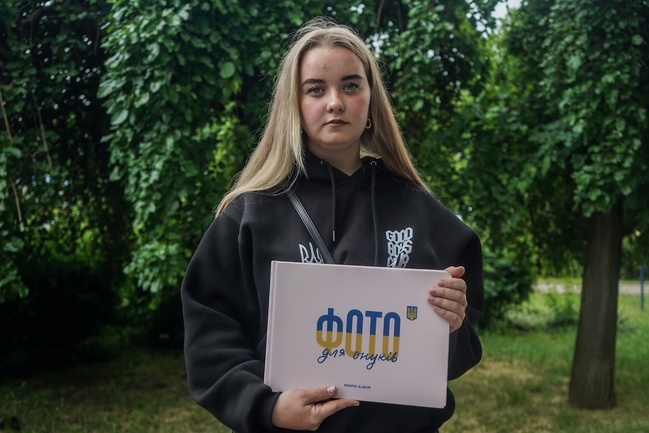 Olha poses with her album. Photo: Intent/Albina Karman
Olha poses with her album. Photo: Intent/Albina Karman
On February 24, 2022, the family moved from Mykolaiv to the Bashtanka district, hoping for a quieter life. But on February 26, Olha's father, uncle, and grandfather decided to step in to defend their homeland.
"My mother received a Viber call from my dad's phone, and we thought it was him. It turned out to be Russian soldiers who informed us that my dad had been captured. In May, my grandmother received a call from the Red Cross saying that my grandfather was also in captivity," says Olha. She believes her father was frequently moved between locations while in captivity, but the family has lost track of his exact whereabouts because they haven't received any updates. They also have no information about her grandfather and are concerned about his back problems.
"A young guy was released during an April swap, and he contacted us. He was my dad’s cellmate and says he was hanging in there; he doesn’t lose hope. My dad has always had a good sense of humour," she says.
Since the start of the campaigns supporting prisoners of war, Olha has been an active participant in reminding people about her family. After each event, she prints out photos and adds them to a large album titled "For Grandchildren." She will show her father and grandfather this album when they return from captivity to remind them of what they fought for.
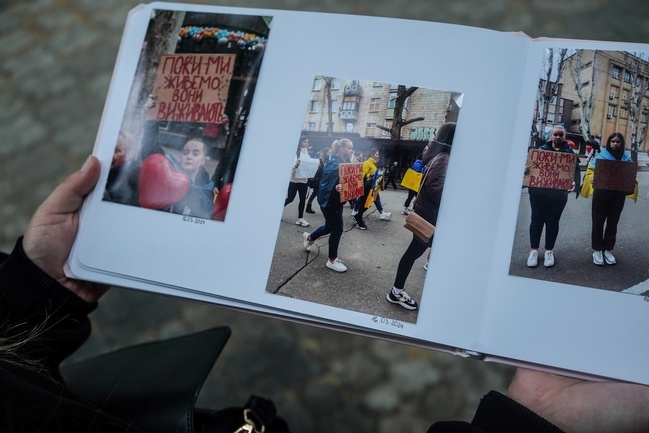 Photos from the event in Mykolaiv that Olha is collecting for her album. Photo: Intent/Albina Karman
Photos from the event in Mykolaiv that Olha is collecting for her album. Photo: Intent/Albina Karman
"Bubochka /sweetheart/, look for me among either POWs or KIAs"
Marine Andrii Ordynskyi began his service in Crimea and continued after leaving the peninsula in 2014. He faced the full-scale invasion with his main brigade on the outskirts of Mariupol.
"In early March, he called me and said they had pulled back to defend Mariupol, holding the Illich plant. He rarely contacted me. He would tell me how they were under constant artillery and aerial bombardment, also engaging in close combat. They had to use industrial water because there was no clean water left. Food was almost gone, too," recalls Anastasia, his wife.
After suffering a spinal injury during the Anti-Terrorist Operation, Andrii had to go through dedicated treatment every 4-5 months due to complications from the titanium structure pressing on his nerves and making his right leg fail.
"When I asked him if he had any painkillers (I always packed his first aid kit), he said he had given everything to the medics because there were so many wounded," says Anastasia.
In April 2022, in a bid to save their personnel's lives, marine commanders attempted multiple breakthroughs from Mariupol to Ukrainian government-controlled territory, but they suffered heavy losses.
"On April 12, my beloved called early in the morning, saying the breakthroughs weren't going well, but they had a few options to escape. He warned me, 'Bubochka /sweetheart/, look for me either among POWs or KIAs. I know you'll find me for sure.' I found him alive in captivity in early May 2022," recalls Anastasia.
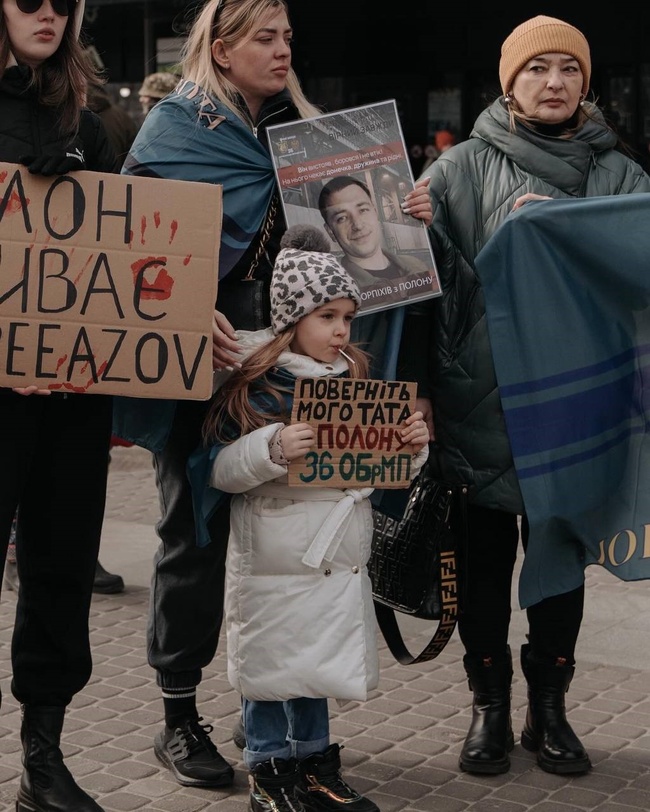 Anastasia and her daughter during the rally. Photo from the interlocutor's personal archive.
Anastasia and her daughter during the rally. Photo from the interlocutor's personal archive.
Until April 2024, she had received only one letter from her husband and confirmation from a released brother-in-arms. Later, she connected with someone who had been Andrii’s cellmate and was released from captivity: "He told me that Andrii was more or less healthy, but very skinny. My husband is 177-178 cm tall and weighed 87 kg before the captivity; that released man said he now weighs about 55-60 kg. The food is very poor. But they give him medicine if he needs it, and he's not being beaten as much as he used to."
At the time of publishing this material, Anastasia received another letter from her husband.
